Author(s) |
Title and Abstract |
Qian, H. Y.,
& Walker, A.

|
Principalship in China: Emerging propositions. Leading & Managing, 20(2), 59-73.
Abstract: Since the release of the 2009 and 2012 PISA results, Shanghai has been considered a world giant in education (Tucker, 2011), with countries all over the world engaged in enthusiastic exploration of what they can learn from this ‘strong performer and successful reformer’ (OECD, 2011). Despite this widespread international interest, however, little is known about the educational changes taking place in mainland China. For example, a search for international journal articles and book chapters specifically on school principalship in China, the focus of the study reported herein, yields just 57 citations over the 16-year span from 1998 to 2013 (e.g. Walker & Qian, in press). Given the paucity of research in this area, the aim of this study was to provide a greater understanding of this important yet underdeveloped topic.
|
Hallinger, P.,
& Thang, T. D.

|
Exploring the contours of context and leadership effectiveness in Vietnam. Leading & Managing, 20(2), 43-59.
Abstract: Global discourse in educational leadership and management has in recent years privileged an ‘instructional leadership’ perspective on understanding principal effectiveness. While there is a growing body of evidence concerning the impact of instructional leadership, we wonder whether the convergence of global discourse around an overly narrow perspective threatens to create an unhealthy role imbalance in the principalship. This article draws on an analysis of the Vietnamese literature on principal leadership to examine how expectations of effective principal leadership are shaped by the environment of schools. Substantive analysis of the literature suggested that the political and cultural leadership roles of the principal continue to outweigh the importance assigned to instructional leadership. The particular balance assigned to these roles is attributed to political and cultural forces that shape the context of education in Vietnam. The article begins to explicate how perceptions of effective school leadership are shaped in a multi-dimensional context comprised of political, socio-cultural and organisational forces. Implications of the analysis include a recommendation to avoid a unitary conceptualisation of principal effectiveness that fails to account for differences in context.
|
Hallinger, P.,
Lee, M.,
& Ko, J
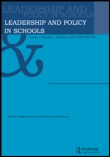 . .
|
Exploring the impact of school principals on teacher professional communities in Hong Kong. Leadership and Policy in Schools, 13(3), 229-259.
Abstract: Since the mid-1990s, teacher professional community has achieved increasing influence as a strategy for facilitating productive change in schools. This study investigates the impact of principal quality and leadership on the development of teacher professional community in Hong Kong primary schools. More specifically, we examine the means by which principal quality, leadership, and organizational trust impact the strength of teacher professional community. Using survey data from 32 Hong Kong primary schools, we found that principals are crucial for the development of teacher professional community. Implications of the major finding are discussed in terms of research, policy, and practice.
|
Bryant, M.,
Cheng, A. Y. N.,
& Notman, R.
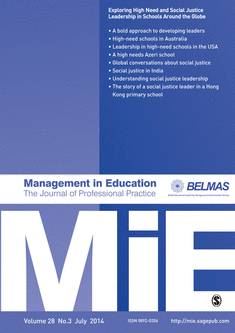
|
Editorial: Exploring high need and social justice leadership in schools around the globe. Management in Education, 28(3), 78-79.
Abstract: As joint editors of this special edition of Management in Education , it is our pleasure to share results from
preliminary research studies across eight countries involved in the International School Leadership Development Network, for which an introduction is provided by the project’s international d irectors: Bruce Barnett (University of Texas San Antonio) and Howard Stevenson (Univer- sity of Nottingham). A sample of research findings is presented under two strands: first, leadership in high needs schools, and second, leadership for social justice. Both strands have been engaged in small-scale, case study research which empirically explores these two foundational concepts before proceeding to more detailed research in the years ahead.
|
Cheng, M. M. H., Tang, S. Y. F.,
& Cheng, A. Y. N.
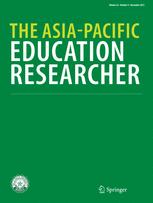
|
Interpreting ambivalence regarding motivation for teaching among student-teachers. The Asia-Pacific Education Researcher, 24: 147-156.
Abstract: Previous research suggests that student–teachers graduate from initial teacher education programmes with varying degrees of motivation to teach. In recent literature, there are student–teachers described to be ambivalent regarding motivation for teaching. More understanding about these cases will inform the design of initial teacher education programmes and the provision of measures to support beginning teachers. Moreover, in-depth research is required such that the meaning of ambivalence regarding motivation for teaching can be better defined. This article reports findings from a 4-year longitudinal study on student–teachers engaged in an initial teacher education programme. Cases showing ambivalence regarding motivation for teaching are identified. The article provides the meaning of ambivalence and analyses the programme experience of student–teachers who are ambivalent regarding teaching. The findings inform us as to whether ambivalence changes at the beginning, the end and/or during the teacher education programme, and the factors affecting the perceptions of ambivalence. The factors are concern about career prospects; lack of confidence in their ability to fulfil the role of a teacher; and influence from the social context. The analysis suggests that ambivalence regarding motivation to teach needs to be addressed beyond the initial teacher education programme level. Implications for ways to build up student–teachers’ confidence and enhance their motivation for teaching are discussed.
Keywords: Teaching motivation; Professional learning; Initial teacher education
|
Cheng, M. M. H., Tang, S. Y. F.,
& Cheng, A. Y. N.
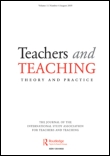
|
Differences in pedagogical understanding among student-teachers in a four-year initial teacher education programme. Teachers and Teaching: Theory and Practice, 20(2), 152-169.
Abstract: As teacher educators, preparing student–teachers who are able to address diverse student needs is our main concern. It has been suggested in the literature that teachers who are adaptive to students’ needs are those who possess adequate pedagogical content knowledge or pedagogical understanding. However, it is not uncommon for teacher educators to find student–teachers with diverse pedagogical understandings even at the point of graduation from the teacher education programme. This paper aims to explain and analyse the development of pedagogical understanding among student–teachers in an initial teacher education programme. The findings are drawn from a study conducted at the Hong Kong Institute of Education where in-depth interviews were carried out during the four-year programme. The findings from the three selected cases provide an explanation for why some individual student–teachers show continuous development, whereas others remain confused in their pedagogical understanding throughout the teacher education programme. While acknowledging individual differences in pedagogical understanding, we attempt to explain such differences by investigating the relationship between different dimensions of the student–teachers’ learning such as the integration of pedagogical understanding with the teaching contexts, integration of feedback from lecturers and supporting teachers, and their focus of concern. The findings reveal that the three cases demonstrate different levels of pedagogical understanding and possess varying ‘senses of agency’. Of the three cases, the first one, Peggy has the strongest sense of agency. Despite influences related to classroom management, diverse learning ability among pupils, and the teaching methods which pupils were accustomed to previously, she actively introduced rhythmic movements into her lessons, developed pupils’ ability to learn gradually and achieved an impact on pupils’ learning which was also recognized by her supporting teacher. The analysis suggests that the second case, Lilian has a weaker sense of agency as she was severely limited by influences in the teaching context in her first teaching practice and resorted to teacher-centered teaching strategies. She improved later on in the programme and started to plan her own learning, drawing on the feedback she received as well as learning from other taught modules, from feedback from various sources, and from her pupils’ responses to her teaching and her own evaluation of her teaching. The third case, Stephanie remained confused throughout the programme and struggled with the implementation of student-centered teaching strategies. The ability to practice one’s own convictions and demonstrate an active sense of agency distinguishes the student–teacher who achieves better pedagogical understanding. Drawing on the findings, the paper concludes that it is crucial for teacher educators to identify ways to nurture a sense of agency among student–teachers. Implications for teacher education programmes are discussed, including providing opportunities for student–teachers to be able to articulate and integrate their pedagogical understandings, as well as negotiate how to accomplish their learning and teaching targets despite complex classroom situations.
Keywords: Pedagogical understanding; Initial teacher education; Professional knowledge; Focus of concern
|
Lam, B. H.
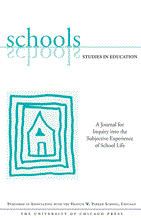
|
Challenges beginning teachers face. Schools: Studies in Education, 11(1), 156-169.
Abstract: By conducting in-depth interviews with new teachers who are about to become full-time teachers and then reinterviewing them two years later, the author of this article presents how beginning teachers think and feel about teaching and describes the challenges they face as beginning teachers in the context of Hong Kong. The stories of the teachers, as revealed by the interviews, suggest that changing educational ideals, school leaders’ management style, and workload issues are some of the important challenges faced by beginning teachers. A short review of work on effective school research and school leadership suggests how school leaders can create an environment that is conducive to teachers’ professional development.
Keywords: Community development; Professional education; Teachers & community; Hong Kong; Public institutions
|
Ho, D., & Lam, H.
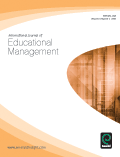
|
A study of male participation in early childhood education: Perspectives of school stakeholders. International Journal of Educational Management, 28(5), 498-509.
Abstract:
Purpose – The function of early childhood education (ECE) has shifted from mothering to nurturing child development in Hong Kong. Teaching in kindergartens seems to be more attractive to men nowadays. The purpose of this paper is to explore the issues of male participation in ECE through a case study of a local kindergarten.
Design/methodology/approach – A case study methodology was used in the research design and the data were collected through semi-structured interviews. The interviewees all came from a single, case study school, and included the kindergarten principal, head teacher, teachers, both Chinese and foreign nationals, and parents.
Findings – The findings of the study indicated that most of the school staff support hiring male teachers in kindergartens and perceive that male teachers play an important role in educating young children. On the other hand, the views of parents who participated in the study were divided. This reflects gender bias on the part of parents.
Originality/value – Minimal research on male participation in kindergartens has been conducted in Hong Kong. The findings of the study shed some light on the issues of male participation in ECE in a Chinese context. It is argued that overcoming the low participation of male teachers in ECE will require changes in deeply rooted institutional and management practices. From a wider perspective, providing better career prospects and improving the professional status of kindergarten teachers will attract more men to teach in kindergartens.
Keywords: Hong Kong, Gender, Professionalization, Equality, Chinese kindergarten, Male teacher
|
Hallinger. P.,
& Chen, J.
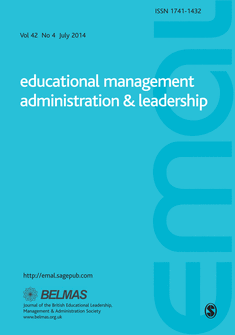
|
Review of research in educational leadership and management in Asia: A comparative analysis of research topics and methods, 1995-2012. Educational Management, Administration and Leadership, 43(1): 5-27.
Abstract: Over the past two decades scholars have called for a more concerted effort to develop an empirically grounded literature on educational leadership outside of mainstream “Western” contexts. This paper reports the results of a review of research topics and methods that comprise the literature on educational leadership and management in Asia between 1995 and 2012. The review of research employed a quantitative descriptive form of systematic review of 478 articles published in eight “core” international journals in educational leadership and management over this period. The review examined trends in publication volume and impact, as well as research topics and methods used by scholars studying educational leadership and management in Asia. The study concluded that Asian scholarship in educational leadership and management remains in the early stages of development. Knowledge production is highly uneven across the continent, with only a few pockets of research excellence. Significant growth trends were observed in terms of scholarly interest in studying leadership in K-12 schools, school change, effects and improvement, and organizational behavior in education. Although qualitative research methods were more popular in this literature prior to 2006, the use of quantitative research methods has increased sharply during the past six years.
Keywords: Administration, educational leadership, educational management, Asia, K-12 schools
|
Hallinger, P.,
& Bryant, D. A.
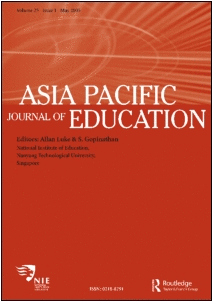
|
Exploring features of highly productive research contexts in Asia: A comparison of knowledge production in educational leadership in Israel and Hong Kong. Asia Pacific Journal of Education, 36(1): 165-184.
Abstract: A recent review of research identified two Asian societies that represented “positive outliers” in the production of published knowledge on educational leadership and management: Hong Kong and Israel. These were the only Asian societies that had produced a critical mass of publications in this field in international journals over the past two decades. The current study examined the nature of the publication corpus from Hong Kong and Israel in an effort to understand factors that may have contributed to this capacity for high research productivity. The results suggested that different strategies may have accounted for research capacity development in these two societies. Directions are identified for future research.
Keywords: knowledge production, knowledge base, education management, education leadership, research productivity, higher education |
Walker, A.,
Lee, M.,
& Bryant, D. A.
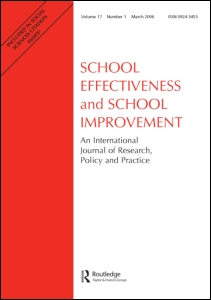
|
How much do principals make a difference? An analysis of between-schools variation in academic achievement in Hong Kong public secondary schools.
School Effectiveness and School Improvement,25(4): 602-628.
Abstract: This article aims to explain the role principals play in the variation in academic achievement between secondary schools in Hong Kong. The article draws on survey data from 179 key staff and 2,037 students from 42 schools. The study uses 2 analytical approaches. First, it employs classification and regression tree analysis (CART). This was used to sort out the most significant leadership practices associated with student achievement. Second, based on first-stage analysis, the study further explores the effects of leadership practices on academic achievement using hierarchical linear modelling (HLM). Results indicate that transparent and efficient communication structures as managed by principals explained approximately 12% of between-schools variation in academic achievement. Leadership practices related to quality assurance and accountability and resource management also contributed to explaining between-schools variation in academic achievement, yet they had negative effects on student achievement. Implications for research and practice are discussed.
Keywords: between-schools variation; academic achievement; utilization of communication structures; quality assurance and accountability; resource management; Hong Kong; principals
|
Hallinger, P., Heck, R. H.,
& Murphy, J. F.
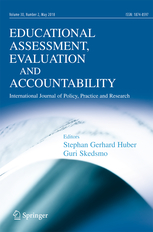
|
Teacher evaluation and school improvement: An analysis of the evidence. Educational Assessment, Evaluation and Accountability, 26(1), 5-28.
Abstract: This paper examines the new generation of teacher evaluation along three lines of analysis: evidence on the magnitude, consistency, and stability of teacher effects on student learning, evidence on the impact of teacher evaluation on growth in student learning, and literature from the sociology of organizations on how schools function. Although the trend towards focusing on teacher evaluation is increasingly evident internationally, most of the empirical research evaluated in this paper is from the USA. This critical evaluation of the empirical literature yields two key conclusions. First, we conclude that the policy logic supporting this reform remains considerably stronger than the empirical evidence. Second, we suggest that alternative improvement strategies may yield more positive results and at a lower cost in terms of staff time and district funds.
Keywords: Teacher evaluation; Educational effectiveness; Teacher effectiveness
|
Hallinger, P.

|
Riding the tiger of world university rankings in East Asia: Where are we heading? International Journal of Education Management, 28(2), 230-245.
Abstract: The paper will:
• Examine the emergent global emphasis on world university ranking as a driver of
change in higher education,
• Discuss how the world university rankings are impacting East Asian universities,
• Assess consequences for higher education in the region,
• Explore options for leading East Asia's universities in a more meaningful
direction.
Keywords: Higher education; Asia; Performance; Leadership rankings; Quality
|
Siu, O. L.,
Lu, J., et al.

|
A three-wave study testing a bi-directional model of work-family enrichment: Social resources and affect. Stress & Health. Retrieved on April 6, 2014, from http://dx.doi.org/10.1002/smi.2556
Abstract: On the basis of conservation of resources theory (Hobfoll, 1989) and the resource-gain-development perspective (Wayne, Grzywacz, Carlson, & Kacmar, 2007), this paper examines the differential impact of specific social resources (supervisory support and family support) on specific types of affect (job satisfaction and family satisfaction, respectively), which, in turn, influence work-to-family enrichment and family-to-work enrichment, respectively. A sample of 276 Chinese workers completed questionnaires in a three-wave survey. The model was tested with structural equation modelling. Job satisfaction at time 2 partially mediated the relationship between time 1 supervisory support and time 3 work-to-family enrichment (capital), and the effect of supervisory support on work-to-family enrichment (affect) was fully mediated by job satisfaction. Family satisfaction at time 2 fully mediated the relationship between time 1 family support and time 3 family-to-work enrichment (affect, efficiency). Implications for theory, practice and future research are discussed.
Keywords: family satisfaction;
family support, job satisfaction;
supervisory support;
work–family enrichment
|
Ko, J.,
Hallinger, P.,
& Walker, A.

|
Exploring whole school vs. subject department improvement in Hong Kong secondary schools. School Effectiveness and School Improvement, 26(2): 215-239.
Abstract: Research on school improvement tends to assume that school improvement is a schoolwide
process. Nonetheless, some researchers have also proposed that secondary
schools are comprised of subcultures centered on subject area departments. It has
further been suggested that variations in the sociocultural organization of subject
departments could produce differential results in the learning outcomes of students.
To date, however, few empirical studies have examined the leverage offered by this
perspective. The current study addresses this gap in the literature by analyzing changes
in the learning outcomes of subject departments over a 3-year period as compared with
patterns of whole school improvement in 47 Hong Kong secondary schools. The
results support the proposition that theory, research, and practice on secondary schools
will benefit from viewing their improvement from a perspective that takes into account
the diversity of department-level conditions and learning outcomes.
Keywords: school improvement; education reform; secondary schools; Hong Kong;
change; subject departments |
Lu, J.,
Hallinger, P.,
& Showanasai, P.
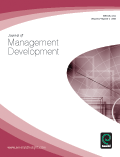
|
Simulation-based learning in management education: A longitudinal quasi-experimental evaluation of instructional effectiveness. Journal of Management Development, 33(3), 218-244.
Abstract: This report describes a longitudinal quasi-experimental evaluation of simulationbased learning at a graduate school of business (GSB) in Thailand. The ‘intervention’ consisted of three courses in the GSB’s Master of Management program that incorporated computer simulations. These courses were taught 202 times by 22 different instructors over a period of 20 consecutive trimesters between 2001 and 2007. This report compares student perceptions of instructional effectiveness in the SBL courses with courses that employed a variety of other instructional approaches.
Keywords: Management education; Simulation-based learning; Multiple time-series design;
Student evaluation |
Katyal. K. R.,
& King, M. E.
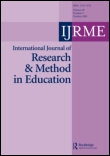
|
Non-Chinese researchers conducting research in Chinese cultures: critical reflections. International Journal of Research and Method in Education, 37(1), 44-62.
Abstract: This paper intends to
serve as an overview that may guide future research in Hong Kong. Issues raised
in this paper will need re-theorizing in order to provide a more realistic and
comprehensive view of the need to re-examine the paradigms that guide research
methodology in Confucian societies.
Keywords:
Keywords: research methodology, Confucian heritage cultures, outsider research,
sensitive research
|
Szeto, E., & Cheng, A.

|
Exploring the usage of ICT and YouTube for teaching: A study of preservice teachers in Hong Kong. The Asia-Pacific Education Researcher, 23(1), 53-59.
Abstract: The aim of this study is to better understand their usage of ICT tools and YouTube for teaching during their teaching practicums. Multiple data sources, including interviews, observation of class sessions, a questionnaire and relevant materials, were collected in a teacher education institution in Hong Kong. The results reveal that their ICT usage is high and YouTube is useful for teaching at all three school levels: kindergarten, primary and secondary. The constraints and affordances of YouTube for teaching were identified, namely ‘information’, ‘demonstration’ and ‘open-ended constructivist’. However, the pre-service teachers have not fully utilized this ICT tools as part of the constructivist approach. Implications for educators are discussed. |
Law, E. H. F.,
Lee, J. C. K.,
Wan, S.,
Ko, J.,
& Futoshi, H.
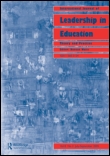
|
Influence of leadership styles on teacher
communication networks: A Hong Kong case study. International Journal of Leadership in Education, 17(1), 40–61.
Abstract:
This article reports the findings of a study conducted in an elementary school in
2007–2008. The design-based study, which is a replication of another study conducted
in 2003–2005, analysed the influence of different leadership styles on teacher communication
networks. Two curriculum development teams, namely English and General Studies
teams, were set up to help in curriculum innovation, design and implementation in
classrooms. Participating teachers conducted reflection meetings to evaluate the effectiveness
of the implemented curriculum and discuss measures for improvement. Teacher
interviews were conducted before and after each cycle of curriculum innovation. Meetings
were videotaped. This study analyses the videotaped meetings through quantitative
and qualitative approaches, and aims to show the effects of leadership styles and power
on communication networking systems of the two teams. Results show that two modes
of communication networking systems are prevalent in the videotaped meetings:
restricted and extended modes. These two modes have different effects on space for teacher
learning. The extended mode allows more space for teacher participation and
reflection, whereas the restricted mode restricts teacher access to active participation. An
effective leadership programme enhances the capacities of participants, creates conditions
that allow the emergence of extended mode in meetings and provides guidance towards
the realization of innovations.
|
Lu, J., Jiang, X.,
Yu, H., &
Li, D.

|
Building collaborative structures for teachers' autonomy and self-efficacy: The mediating role of participative management and learning culture. School Effectiveness and School Improvement, 26(2): 240-257.
Abstract: This study focused on the collaborative structure-building behavior of school principals
and examined how such behavior affects teacher empowerment. More important,
it tested the mediating effects of participative management and learning culture. By
collecting nested data from 104 schools in Hong Kong and adopting multilevel
structural equation modeling, we found that teachers’ sense of autonomy and selfefficacy
were correlated at the individual level but were independent at the school
level. The effect of building collaborative structures on teachers’ self-efficacy was
mediated by both participative management and learning culture, whereas the effect on
autonomy was mediated by participative management only. The findings contribute to
the literature in at least 2 ways. First, the inclusion of both principal leadership and
school-level factors provides more refined predications of teacher empowerment.
Second, the testing of the theory-grounded hypotheses in an Asian society verifies
the validity of certain cultural assertions about this region.
Keywords: principal leadership; collaborative structures; autonomy; self-efficacy;
mediating variable |
Chen, J.

|
Teachers' conceptions of approaches to teaching: A Chinese perspective. The Asia-Pacific Education Researcher, 24(2): 341-351.
Abstract: Teachers’ belief systems about the nature and
purposes of a phenomenon such as teaching and learning
influence strongly how they teach and what students learn
and achieve. A sample of 891 Chinese middle school
teachers from 15 middle schools in a province in China
responded to a 48-item questionnaire which explored their
conceptions of approaches to teaching. Confirmatory factor
analysis was utilised to generate a model of approaches to
teaching. This model comprised five factors, namely, Being
Authorities and Teacher-centred, Focusing on Examination
Practices, Developing Life-long Learners, Engaging Students
in Learning, Being Responsible for Teaching and
Home Connections. Differences in approaches to teaching
were associated with various teacher characteristics
including sex, age, teacher certificate and the year level
they taught. The results strongly indicated a reliance on
traditional Chinese teaching, but also identified some
more student-centred teaching in Chinese middle schools.
Implications for teaching improvement and professional
development are discussed.
Keywords: Middle school; Approaches to teaching; Chinese education; Confirmatory factor analysis
|
Hallinger, P.,
& Lee, M.

|
Mapping instructional leadership in Thailand: Has education reform impacted principal practice? Educational Management, Administration and Leadership, 42(1), 6-29.
Abstract: The current study explores the principal's changing role as an instructional leader in
Thailand, where education reforms adopted in 1999 sought to change modal approaches to teaching
and learning as well as school management. The study employed surveys of principal instructional
leadership conducted prior to and following adoption of Thailand's National Education Act 1999 to
assess change in principal practice. The results suggest that despite new system expectations for
principal to act as instructional leaders, the predominant orientation of Thai principals remains
largely unchanged. The authors recommend that more systematic and substantial steps are needed
to train and support principals in making this change in their role.
Keywords: education reforms, instructional leadership, schools leadership, Thailand
|
Tang, S. B.,
Lu, J.,
& Hallinger, P.

|
Leading school change in China: A review of related literature and preliminary investigation. International Journal of Educational Management, 28(6): 655-675.
Abstract: Like other nations in Asia, mainland China has undergone continuous reforms in its economic, political and social institutions over the past two decades. These changes are also reflected in its education system, which has been both the target of government reforms and an agent for social change. In this context, China's Ministry of Education has cast school principals as key actors in leading and managing change in schools at the local level throughout the country. The purpose of this paper is to explore how Chinese school leaders successfully respond to the implementation of educational reform.
Keywords: China, Asia, Leadership, School change, Educational reform, Principal, School improvement
|
Li, F.,
Chen, J.,
& Baker, M.
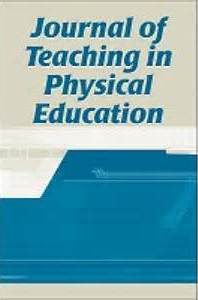
|
University students' attitudes toward physical education Teaching. Journal of Teaching in Physical Education, 33(2): 186-212.
Abstract: While there have been many studies into students’ attitudes toward Physical Education at the school level, far fewer studies have been conducted at the university level, especially in China. This study explored 949 students’ attitudes toward their university Physical Education experiences in four Chinese universities. An intercorrelated model of students’ attitudes toward Physical Education comprised of five dimensions, namely Physical Fitness, Self-Actualization and Social Development, Physical Education Curriculum, Physical Education Teachers, and Physical Education Teaching, was conceptually and empirically developed and tested using exploratory and confirmatory factor analysis. The overall findings suggested that the students had moderately positive attitudes toward Physical Education. More specifically, the findings indicated that students’ attitudes had a significantly positive moderate association with their current participation, a small association with their intended lifelong participation in physical activity outside school, and a significantly positive moderate association with their Physical Education academic achievement. Implications for Physical Education teacher training and curriculum modifications are discussed.
Keywords: Chinese education, exploratory factor analysis, confirmatory factor analysis, participation in physical activity |
Hallinger, P.,
& Lu, J.
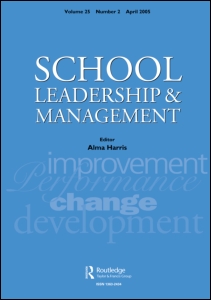
|
Modelling the effects of principal leadership and school capacity on teacher professional learning in Hong Kong primary schools. School Leadership & Management, 34(5): 481-501.
Abstract: Over the past 30 years, school principals have been exhorted to articulate a clear vision as a key tool for stimulating the improvement of teaching and learning in their schools. Over the past decade, as school systems have sought to distribute leadership more broadly within schools, the same imperative has applied to middle-level leaders. Indeed, a key assumption underlying the move towards sharing leadership responsibilities more broadly has been the belief that this would strengthen collective efforts and reduce the gap between goals and outcomes. Yet, to date, there have relatively few investigations of the extent to which middle-level leaders are contributing to school improvement efforts. This study sought to understand how shared vision within school management teams (SMTs) impacts teacher commitment and teacher support for students through school alignment and coherence. Dyad survey data were collected from 411 SMT members and 559 teachers at 32 primary schools in Hong Kong. Results indicated that shared vision in SMTs is positively related to teachers' perception of school alignment and coherence, teachers' commitment and teacher support to students. Theoretical and practical implications of findings are discussed.
Keywords: principal, leadership, capacity, teacher learning, professional development
|
Li, L.

|
A review of three decades of empirical studies on principal time allocation at work: From the perspective of methodological features. International Journal of Comparative Education and Development, 16(2), 16-28.
Abstract: The allocation of school principals' time at work is more than a matter-of-fact issue of principal work efficiency and time management. It reflects the distribution of principals' attention to their responsibilities, thereby greatly affecting school management and improvement. The body of preexisting literature maintains that, "the allocation of greater attention by principals to certain task domains may offer greater leverage for school improvement than others" (as cited from Lee & Hallinger, 2011, p. 1; Hallinger & Heck, 1996; Leithwood, Louis, Anderson, & Wahlstrom, 2004). Therefore, principal time use is a terrain worthy continuous and in-depth exploration.
|
Choi, T. H.

|
The impact of the “Teaching English through English” policy on teachers and teaching in South Korea. Current Issues in Language Planning, 16(3), Retrieved 11 May 2015, from doi:10.1080/14664208.2015.970727
Abstract: In recent years, Asian countries including South Korea have been trying to redefine the role of English in response to globalisation. The impact of this on English language teaching and on Korean society more generally has been well documented; however, the impact of this change on individual teachers and their teaching calls for further attention. This article investigates the impact of an in-service teacher certification scheme which promotes English as the medium of instruction (MOI) for teaching English in the South Korean context, and examines the factors which shaped this impact. Drawing on interviews with stakeholders and insights from a larger case study of which these interviews form a part, this article provides important insights into the implementation and impact of language planning and policy (LPP). It examines the ways in which particular elements of the design of LPP, their implementation and the context interact to affect teachers and their adoption of English as the MOI. It also draws attention to unplanned impacts of LPP including significant shifts in teachers’ identity. It concludes with wider implications for future LPP which aims to change the relative importance and roles of a foreign language.
Keywords: : language planning and policy; medium of instruction; policy impact; qualitative research; South Korea |
Lu, J.
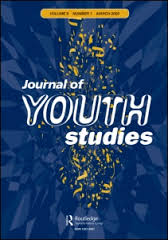
|
Fostering student creativity: What teachers can do? (撬動學生創意:教師可以做什麼?). Journal of Youth Studies (青年研究學報). Retrieved Jan 7, 2015, from http://yrc.hkfyg.org.hk/page.aspx?corpname=yrc&i=7896&locale=en-US.
Abstract: What can teachers do to foster student creativity? This paper presents a synthesis of literature in education and organizational science. It focuses on identifying contextual factors that contribute to the development of student creativity, including role modelling, informal learning experiences, collaborating with diverse others, psychological safely, and cultivating an inclusive school environment. The practical implications for teaching practices and ways of interacting with students are also discussed.
Keywords: creativity, teacher, education, primary and secondary schools, tertiary institution |